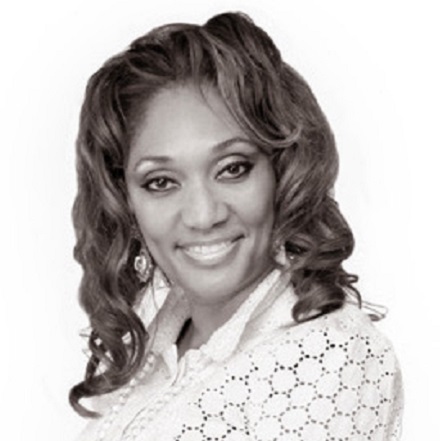
In the News
Trusted Navigators Assist Family Caregivers in Obtaining Holistic Care for Aging People with Serious Illnesses
- California Health Care Foundation Blog
-
Focus Areas
Health Care & Population Health, Healthy Communities -
Expertise
Coalition & Network Building, Outreach & Dissemination -
Programs
AC CARE Alliance(PHI program 2018-2025)

“Leslie Arnold’s 87-year-old mother was diagnosed with Alzheimer’s disease 10 years ago, and caring for her has become increasingly difficult as the disease has progressed. Sometimes his mother is resistant to changing out of soiled clothes or going to bed, and she stays up reorganizing dishes in kitchen cabinets throughout the night.
Arnold lives near his mother’s house in Gardena, in the South Bay area of Los Angeles County, where he takes turns with his two brothers caring for her for a week at a time. During his shifts, Arnold cooks, cleans, shops, and takes his mother to doctor’s appointments. He is also careful to keep the door locked so she doesn’t leave the house unsupervised and get lost.
His brothers, who both live out of state, pay out-of-pocket for a home health aide 21 hours a week. Despite the fact that their mother served in the Air Force, the sons’ repeated efforts to secure assistance through the Veterans Administration (VA) and Medi-Cal have been unsuccessful.
“I’ve never experienced such confusing processes,” said Arnold, 64, who detailed the “frustrating, time-consuming, and stressful” roadblocks he faced while seeking support services through government agencies. “My world was shrinking with Mom because we needed more help,” he said.
Then a pastor from Arnold’s church told him about an organization that partners with faith communities to connect families with trained care navigators who can help people with serious illnesses access services for food, transportation, home-based palliative care, advance care planning, and more. The nonprofit, AC Care Alliance (ACCA), recently expanded from the San Francisco Bay Area to Los Angeles.
In May, Arnold talked to care navigator Nikki High, who took time to learn about his mother’s situation and needs. The following month, High invited Arnold to a church food bank to pick up free groceries and incontinence supplies. There, she introduced him to a VA representative, who within minutes had called a colleague whose connections helped Arnold finally access VA benefits such as in-home caregiver support.
“We had previously applied three times, but the VA could never find her registration even though I had her honorable discharge records,” said Arnold. “It was a relief to get help accessing resources that should have been available all along.”
High could facilitate the breakthrough because she had been trained to navigate the complex world of support resources and to build rapport with families who often distrust a medical system rife with health inequities. Studies have shown that older Black adults are less likely than White adults to have their chronic illnesses sufficiently managed, complete advance directives, or use use hospice care at the end of their lives.

Patients and family members of color are often dealing with a sense of intimidation and fear when they are talking to providers, so they are less comfortable asking someone to explain the options. Our care navigators convey a sense of respect for participants, and that makes all of the difference in terms of reducing barriers.Rev. Cynthia Carter-Perrilliat, MPA
Executive Director of the AC CARE Alliance Advanced Illness Care Program based at the Public Health Institute
Improving Life with a Serious Illness
ACCA was founded in 2013 after five Black pastors from Alameda County realized people in their congregations with advanced illnesses and their caregivers needed more support, with surveys showing 30% to 50% of their congregants struggled with this issue. Pastors were often called in the final days or hours before death, but many families needed help much earlier with loved ones who had cancer, strokes, emphysema, uncontrolled diabetes, end-stage renal disease, Alzheimer’s disease, or other conditions.
After soliciting input from health systems, congregants, community groups, and national organizations, the advisory pastors – led by Carter-Perrilliat – developed a holistic and faith-based lay care navigation intervention called Alameda County Care Alliance Advanced Illness Care Program (ACCA-AICP).
Jill Joseph, MD, PhD, a professor emeritus at UC Davis Betty Irene Moore School of Nursing, worked with ACCA to refine the intervention, which was free of charge and focused on meeting the needs of participants. In a series of up to 12 phone and in-person visits, the navigators offered support in five areas of need: spiritual well-being, health, advance care planning, caregiving, and social supports (such as transportation, meals, housing). The program has since expanded from Alameda County to Contra Costa, San Francisco, San Mateo, Santa Clara, and Los Angeles counties.
“The beauty is that the care navigators come from the community they’re serving, so they have a greater ability to understand the experiences of the people they work with,” said Kate Meyers, a senior program officer for the California Health Care Foundation, which has awarded ACCA several grants. “The trusting relationships can be built sooner and better, which makes it easier for people to get the holistic support they are often not receiving from the health care system.”
Motivational Interviewing
The 12 navigators ACCA employs are versed in motivational interviewing — helping individuals discern their values and their goals for change rather than telling people what to do — and in sharing their own stories to connect with families. Participants will often talk more openly about their situation after Trevino Cochran, regional director of ACCA in Los Angeles, describes how his father died. After a severe stroke, providers sent his father to a skilled nursing facility, where he declined rapidly. “We did not know how to advocate for him, and the medical team assumed we could not afford better options,” said Cochran, adding that providers directed his father to lower quality skilled nursing facilities because he was a Black patient on both Medi-Cal and Medicare.
Now, Cochran is an advocate for others. Recently, he helped a woman whose husband was hospitalized after a massive stroke. Initially, the hospital had planned to move her husband to a skilled nursing facility, but after a visit, the woman was concerned about its suitability. And despite her repeated efforts to talk to hospital staff members, no one would speak to her.
Her church leaders connected her with ACCA and Cochran. At the hospital, Cochran showed his ACCA business card and asked to see a hospital manager, who eventually appeared. He then helped the woman advocate for home health care covered by the hospital organization. Now, her husband is improving at home.
ACCA’s care navigators are also equipped to help participants prepare for clinician visits by listing goals for the visit and prioritizing questions, or assist with completing advance directives if they are unable to speak for themselves due to illness. “They learn the importance of thinking about whether medical treatment will support healing or not and of selecting a health care agent to make decisions if they cannot do this,” said Valerie Steinmetz, a program manager at ACCA.
Relief for Caregivers
To further expand the program, Carter-Perrilliat’s team has been educating health care providers about the lay care navigation ACCA offers. In 2021, ACCA launched a pilot study with Kaiser Permanente’s Oakland Medical Center in which primary care providers refer patients to the program. More recently, ACCA formed a partnership to receive referrals from LifeLong Medical Care, a Federally Qualified Health Center located in Alameda and Contra Costa counties.
So far, more than 1,400 people have been served by ACCA’s Advanced Illness Care Program, with 55% completing advance directives and 85% receiving prayer during the visits, according to a program evaluation study led by the UC Davis Betty Irene Moore School of Nursing. The success of the program has captured the interest of faith leaders and health care organizations in Boston, Baltimore, Detroit, Ohio, and Washington, DC. Knowing this, Carter-Perrilliat is considering national expansion in the future.
As ACCA works to continue reducing health disparities by reaching Black people and other communities of color with serious illnesses, pastors and others on the frontlines are seeing encouraging signs of progress. For years, Brandon Reems, pastor of Center of Hope Community Church in Oakland, did not feel equipped to support caregivers in his congregation who were burdened by the responsibilities involved in taking care of declining, elderly loved ones. Now, he is able to offer them some relief.”
“I was seeing many of them become burned out, which affected their well-being, family life, and marriage,” said Reems. “People are extremely happy when I can connect them to a navigator, and over time, I often see the health of both the patient and the caregiver improve.”
Originally published by California Health Care Foundation Blog
More Updates
Work With Us
You change the world. We do the rest. Explore fiscal sponsorship at PHI.
Support Us
Together, we can accelerate our response to public health’s most critical issues.
Find Employment
Begin your career at the Public Health Institute.



